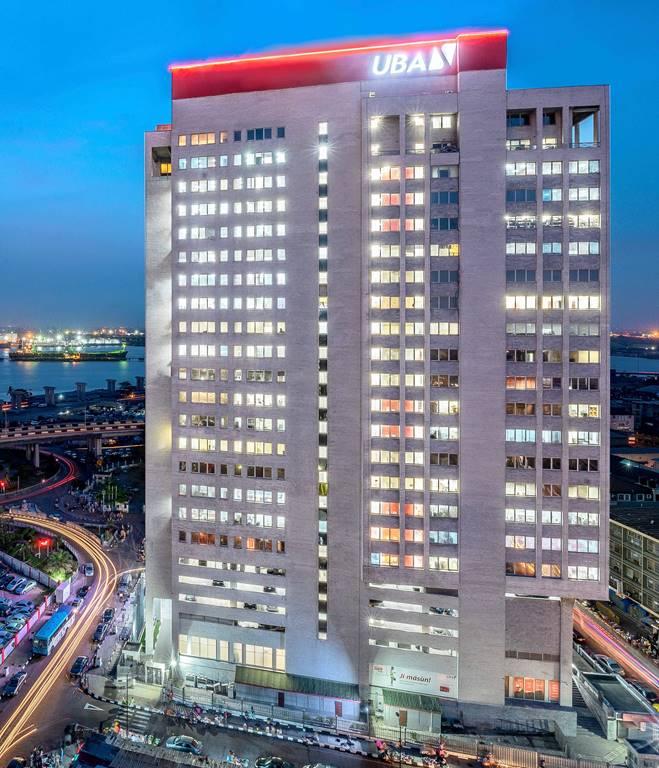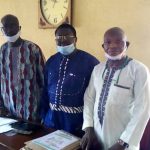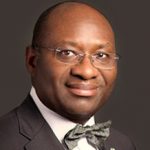...To get all news updates, Join our WhatsApp Group (Click Here)
Also Join our WhatsApp Channel (Click Here)
Africa’s leading financial institution, United Bank for Africa (UBA) Plc, has announced its audited financial results for the half year ended June 30, 2020, showing commendable growth across key performance indices as well as increased contribution from its African subsidiaries.
Notwithstanding the challenging business and economic environment occasioned by the Covid-19 pandemic, the pan African financial institution was able to deliver growth in its gross earnings which rose to N300.6bn up from N294bn recorded in the same period of 2019.
According to its results filed with the Nigerian Stock Exchange (NSE), the Group recorded N2.2 trillion in net loans to customers, representing a 6.1% growth even as deposits from customers increased impressively by 25.2% to N4.8tn. Net interest income grew by 8.4% to N119.3billion, whilst net fee and commission income stood at N38.6billion representing a 7.0% increase compared to the similar period in 2019.
As at June 30, 2020, the Bank’s Total Assets surpassed the N6tn mark as it leaped to N6.8 trillion. Operating income also grew by 7.7% to N197.1bn compared to N182.9bn while profit before tax stood at N57.1bn from N70.3bn in 2019, yielding a 14.4 per cent annualised return on average equity.
The bank’s Shareholders’ Funds remained strong at N634.7bn up from N597.9bn in December 2019, driven by growth in retained earnings, a reflection of UBA’s capacity for business growth. In line with its culture of paying both interim and final cash dividend, the Board of Directors of UBA Plc declared an interim dividend of N0.17 per share for every ordinary share of N0.50 each held by its shareholders.
Commenting on the results, UBA’s Group Managing Director/Chief Executive Officer, Mr. Kennedy Uzoka said “Our 2020H1 results is yet another demonstration of the resilience of our business model in an extremely uncertain and tough operating environment. We recorded commendable growth in our underlying business in terms of customer acquisition, transaction volumes and balance sheet whilst inflation, depressed yield environment and exchange rate volatilities impacted our net earnings as anticipated.
He further stated, “Despite the short-term challenges to various economic sectors occasioned by the Covid-19 pandemic, we focused on the fundamentals of businesses in growth-driving sectors of various economies in which we operate and achieved 6.4% growth in gross loan to customers, reaching the N2.3trillion mark. The Group achieved N114.3 billion (a 10% YoY growth) in interest income from loans and advances to customers, as well as credit related fees and commissions.
Uzoka explained that notwithstanding the lock-down in a number of countries and the general lull in several economic sectors, UBA’s banking channels remained open to customers ‘24/7’, adding that “Fortunately, we had proactively built robust electronic channel platforms to enable us serve customers efficiently, and deliver services to them in the comfort of their homes. Notably, we are adjusting our operating model in response to the ‘new normal’ and will continue to optimise the way we work and serve customers in the days ahead.”
He expressed confidence in the bank’s capacity to deliver good returns to shareholders: “we remain committed to our drive as ‘Africa’s Global Bank’ and confident of claiming and sustaining industry leadership on key metrics across geographies where we operate. We will strive to deliver our services in a sustainable way, ultimately leveraging our best-in-class digital capabilities to delight our 21 million (and growing) customers across 23 countries.”
Also speaking on the results, UBA’s Group CFO, Ugo Nwaghodoh said “Our H1 2020 results reflects the inherent benefits of diversification as we have seen marked growth in contribution from the subsidiaries across Africa. Our Rest-of-Africa operations have continued to break new grounds in market share gains, providing a buffer for Group earnings. As the global and local economies begin to improve, we remain optimistic of a better performance in the second half of the year, with expected improvement in the Group’s NIM and ROAE which stood at 5.4% and 14.4% respectively as at end of H12020.
“We defensively positioned our loan portfolio whilst we grew gross loans by 6.4%, maintaining our prudent risk appetite, even as NPL ratio for the Group moderated to 4.1% (from 5.3% in 2019FY). We have prudently set-up reserves for loan impairments in recognition of potential losses on the portfolio, resulting in 150% growth in our provisioning. Albeit, cost of risk moderated to 0.7% from 0.9% in 2019FY. The Group’s capital adequacy ratio increased to 24.9% providing a very strong buffer for asset growth. We remain committed to maintaining our robust risk management practices, as profitable growth and good asset quality remain our priority in 2020,” he noted.
United Bank for Africa Plc is a leading Pan-African financial institution, offering banking services to more than twenty-one million customers, across over 1,000 business offices and customer touch points, in 20 African countries. With presence in the United States of America, the United Kingdom and France, UBA is connecting people and businesses across Africa through retail; commercial and corporate banking; innovative cross-border payments and remittances; trade finance and ancillary banking services.
You can get every of our news as soon as they drop on WhatsApp ...To get all news updates, Join our WhatsApp Group (Click Here)
Also Join our WhatsApp Channel (Click Here)

















